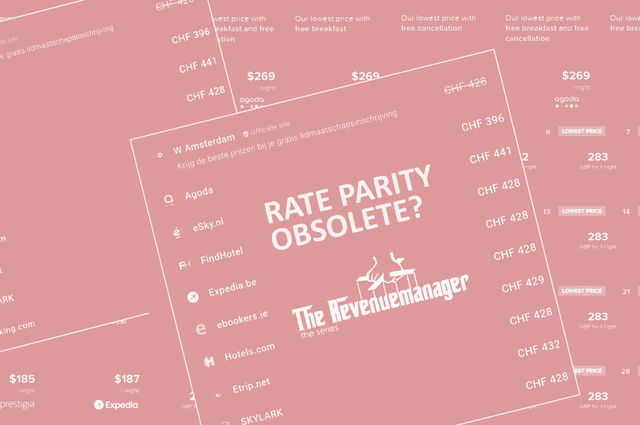Is Rate Parity Obsolete?
16 experts shared their view
The discussion around the pros and cons of rate parity has been around for almost a decade now. Regulations on the issue are, at best, patchy, with some countries where RP clauses are strictly prohibited (such as France, Austria, Italy, and Belgium), partially prohibited (Germany and Sweden), announced (Switzerland), or still unregulated (US and Latin America). With lower volumes of booking coming from OTAs during the pandemic, moreover, the debate about rate parity became even more heated: some properties decided to work in wide rate parity to avoid OTAs' dimming and improve their online visibility at the expenses of direct revenue, while other ones preferred to openly break rate parity on their top-performing channels. Both the OTAs and major hotel brands complicated the issue even further when they began offering out of parity “member only” rates, hidden behind an easily obtained loyalty program password. With so many different approaches and fragmented regulations, how should hotels deal with rate parity, especially after the whole industry has been severely hit by COVID-19?
The concept of Rate Parity was invented by hospitality companies whose business model revolves around generating revenues through commissions, margins or fees on hotel bookings without actually owning or operating hotels (such as OTA's, franchisors, etc.) to prevent hotels from limiting their ability to sell hotel rooms and thus, generate revenues.
While Rate Parity in itself does not financially benefit hotel operations, as those companies grew bigger and stronger, hoteliers became dependent on them and had to start playing by the rules and complying with rate parity clauses in fear of losing a big chunk of their booking flow as a form of punishment for those parity violations.
It is definitely unhealthy for hotel operators to be dependent on those players so much that they have to operate in a manner that results in profit losses. From the perspective of optimal revenue and profit management, hotels need to have full control over how to operate their business, including channel management (limiting availability, setting stay restrictions on certain channels or charging a different price) based on the profitability of those channels that would maximize their bottom line.
With that said, whether Rate Parity is good or bad is a separate question from whether it's going away. I believe it will be lingering around for a while because OTA's are still very strong and franchise companies still own a very large share of the market.



